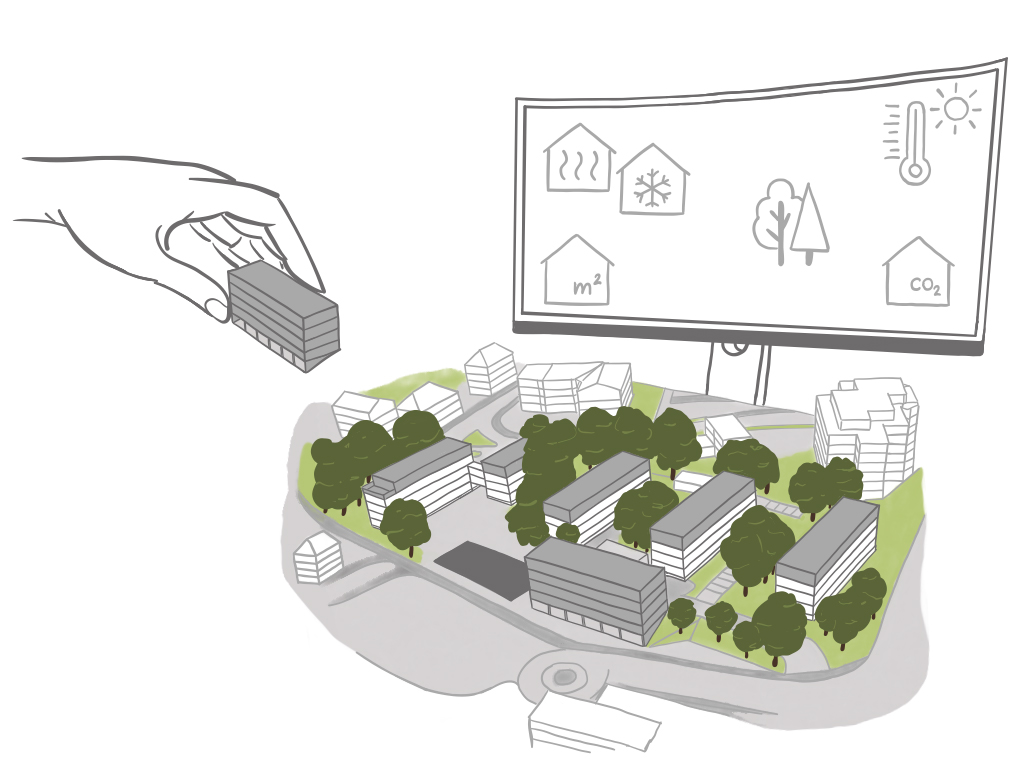Cities are particularly vulnerable to the impacts of climate change. To strengthen the climate resilience of cities, a better and more systematic understanding of the effects of planning and construction processes on the urban climate must be developed. Urban densification processes cause intense interventions in existing neighborhoods and should thus be planned and carried out from a holistic, climate-resilient, and resource-saving perspective. This is why green space design, microclimate, and life cycle analyses, as well as material use, need to be integrated early in the planning process. Based on digital 3D city models, the project "Densification in the Context of Climate Change" developed simulation and visualization methods, that allow to integrate these aspects. This is intended to facilitate the evaluation of planning alternatives in municipal decision-making processes. Planning options can also be better illustrated for public participation through the prototypically implemented tools. The findings from the project are transferable to other cities in Bavaria and Germany. The project closes an important gap in urban planning, which previously lacked such easy-to-use tools.
The eleventh subproject of the ZSK "Densification in the Context of Climate Change" has been successfully completed with the manual on digital planning methods and a final report.
The manual is available for download here.
The final report is available for download here.
The project brief is available for download here.
The project poster is available for download here.
We would like to thank all those involved for the successful collaboration!
